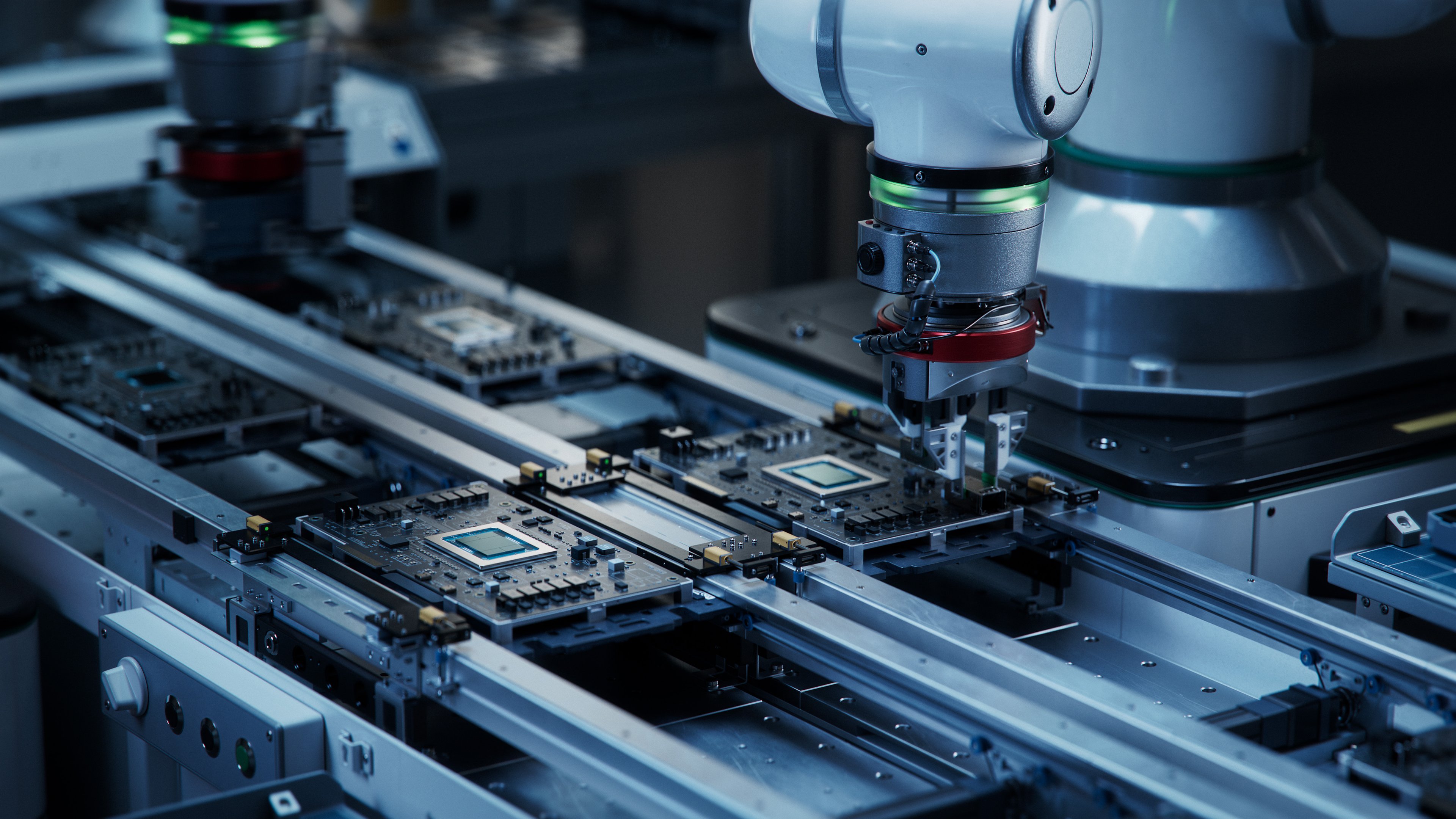Chip giant Broadcom (AVGO 4.84%) is a supplier of critical wireless chips into flagship smartphones. It sells Wi-Fi/Bluetooth combination chips, touch-screen controllers, radio frequency chips, and more into devices like Apple's (AAPL 0.15%) flagship iPhones and the Samsung (NASDAQOTH: SSNLF) Galaxy S and Galaxy Note devices.
Last quarter, Broadcom's wireless chip business, which made up 26% of the company's revenue in that period, saw 13% year-over-year revenue growth but dropped 41% quarter over quarter.

Image source: Apple.
The sequential decline, Broadcom CEO Hock Tan said during its most recent quarterly earnings conference call , "was deeper than usual as shipments to our North American smartphone customer reduced sharply from typically exaggerated first quarter."
That North American smartphone customer is widely understood to be Apple.
Partially offsetting that decline, Tan said, was an "increase in our product shipments to a large Korean smartphone customer as they supporter their new product launch."
The large Korean smartphone customer is, unsurprisingly, Samsung.
For the current quarter -- the third quarter of Broadcom's fiscal 2018 -- Broadcom expects to enjoy a bump in shipments to Apple in support of the upcoming iPhone models. However, that shipment increase is expected to be "offset by a decline in shipments" to Samsung.
Netting this all out, Broadcom expects its wireless revenue "to be flat, maybe even slightly declining on a sequential basis for the third quarter."
Let's dive deeper into what Broadcom management had to say about what's going on here.
Why isn't wireless revenue growing sequentially?
During the conference call, analyst Gabriel Ho observed that the company's guidance with respect to wireless revenue implies that revenue in this segment will be "flattish" year over year for the third fiscal quarter.
The analyst asked Tan to explain why wireless revenue wasn't growing, as Apple's iPhone production ramp this year should be starting earlier than it did last year (you might recall that Apple's flagship iPhone X didn't go up for sale until early November, nearly a month later than the iPhone 8 and iPhone 8 Plus did).
According to Tan, during the third quarter of the last fiscal year, Broadcom "had both the North American smartphone maker and the Korean high-end phone maker going in the same direction."
In other words, Broadcom was seeing its shipments to both Apple and Samsung grow.
This year, however, Tan says that while shipments to Apple are going in the right direction (albeit off what seems to be a worse-than-expected base), shipments to Samsung aren't growing -- they're declining.
"While we are still very positive on the North American phone maker, we are not seeing strength in the Korean phone maker," Tan added.
Investor takeaway
There are three companies involved here, so let's look at what this means for each of them.
For Broadcom, it's clear that the company's wireless growth story is slowing down. While the company's business is well-diversified beyond wireless, and it should still continue to enjoy a dollar content growth story in high-end smartphones, the unit shipment story seems to have substantially slowed down and it's not clear if it'll pick up anytime soon -- if ever.
As far as Apple goes, it's encouraging that Broadcom's shipments to Apple seem to be ramping up and that Tan is "very positive" on its potential business with Apple in the coming product cycle. Another implicit hint here seems to be that, unlike last year, the upcoming iPhone models all look set to launch on time, likely in September. That'll help Apple stay in the spotlight longer and allow it to potentially gain premium smartphone market share.
And, finally, the read here for Samsung isn't good -- if Broadcom's shipments to Samsung were growing this time last year and they're declining this year, then that bodes poorly for Samsung's Galaxy S9 and Galaxy S9 Plus smartphones that launched earlier this year. This is in line with reports that emerged that suggested that pre-orders for the devices weren't as robust as expected.






